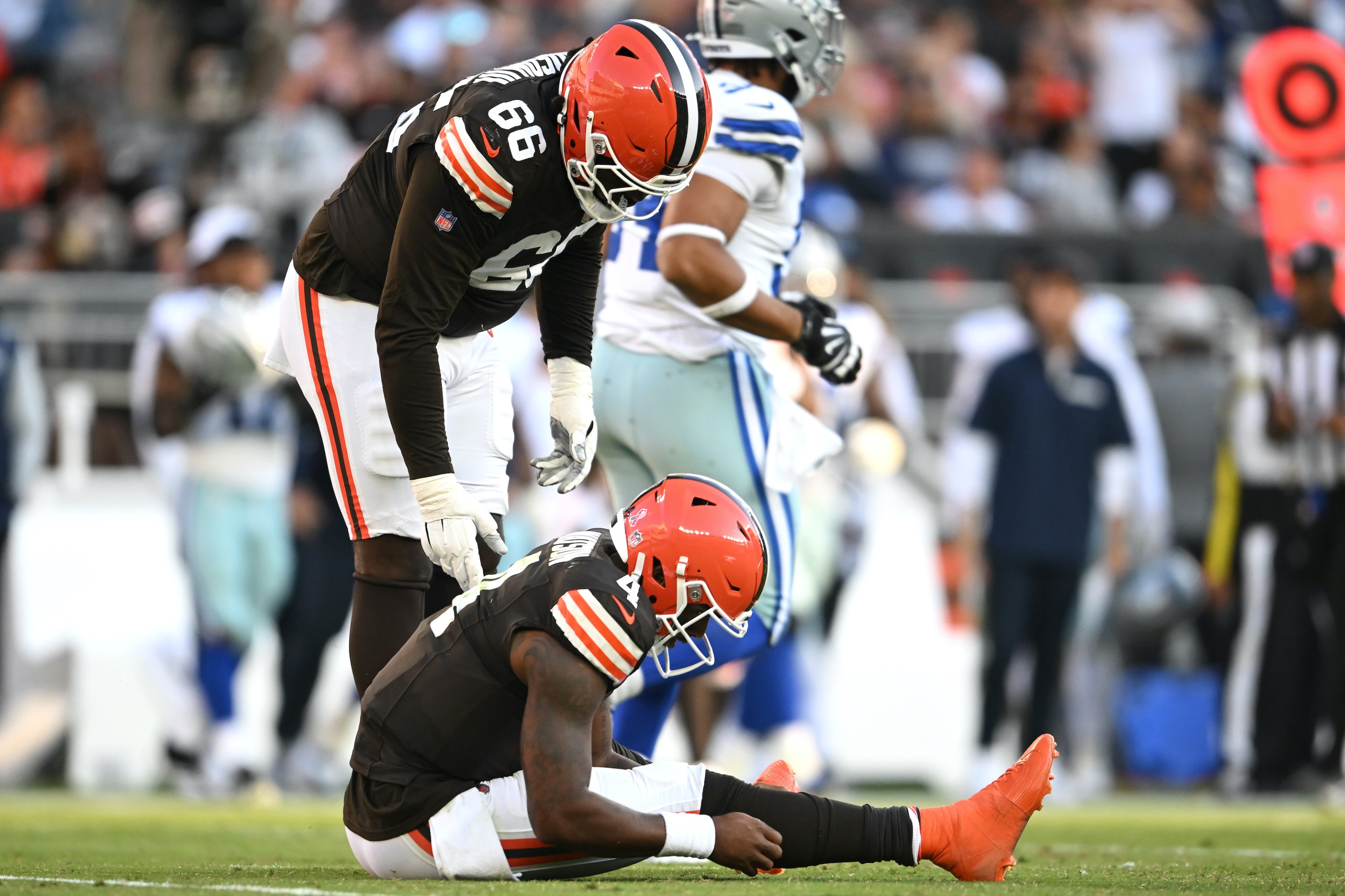The NFL is not a place for morals. If it were, Deshaun Watson wouldn't have a job in the league. But just as it was appalling to watch the Cleveland Browns mortgage everything for a complete creep, it's satisfying to watch them experience the worst-case scenario: The trade that was justified as a purely football decision now can’t even be defended on those grounds.
The path that led the Browns to acquiring Watson was a lot more intentional than the time they drafted 28-year-old Brandon Weeden or somehow had to start Cody Kessler for eight games. In the 2022 offseason, the Houston Texans were looking to get rid of their quarterback after he was held out from the entire 2021 season due to numerous sexual misconduct allegations. The Browns were eager to take him. Cleveland traded three first-round picks and more for Watson, then signed him to a five-year deal with $230 million guaranteed. The team knew at the time that he had nearly two dozen lawsuits pending against him—the majority of which would be settled that summer—and not only brought him in, but secured him as the franchise's future. In 2022, he played six games after a league-issued suspension; in 2023, he played the same number before a season-ending shoulder injury. After Sunday's season opener against the Dallas Cowboys, the assumed cornerstone isn't looking like a viable starter.
With the caveat that the Cowboys' defense is a tough test—in the regular season, anyway—Watson was absolutely dreadful throughout Cleveland's 33-17 loss. He was sacked six times and threw two interceptions. If one wants to be fair, both picks were a result of tipped passes, but one's desire to be fair is pretty minimal here. Even his non-tipped passes sucked: Watson's long throws were inaccurate, and his short completions were unproductive. The Browns trailed 20-3 at halftime as the home crowd booed. It was a beatdown.
Good news, though: The Browns still have so much of Watson's contract to get through. The next two seasons will carry cap hits of $72.9 million per year, after the team restructured his deal in August to create more salary cap space. He has no trade value, and if the Browns wanted to cut him after this season, he would still be paid $92 million in guaranteed money and create a dead cap hit of $172 million.
A smart NFL front office and willing owner will of course find a workaround to make the owed money less consequential—look at how the Denver Broncos handled the release of Russell Wilson this past offseason. Admittedly, figuring out how the Browns will shed Watson is getting ahead of myself. Surely the team will give him more time, since it's only one game, after all—one very bad game. Also, they don't have much of a choice. The money means he's likely starting until he's not physically capable, and backup option Jameis Winston is a creep in his own right, as well as a turnover machine.
The most ironic part is that the Browns, as they are set up now with a stout defense and several offensive weapons, are in a state to maximize practically any other quarterback. They proved it late last year when Joe Flacco, in the twilight of his career, stepped in and guided the team to its first playoff appearance since the 2020 season. Their former first overall pick Baker Mayfield, traded to the Carolina Panthers after the Browns acquired Watson, signed a new deal with the Tampa Bay Buccaneers this past March: three years for $100 million total with $50 million guaranteed, a relative bargain for a QB. As for the Texans, they used Cleveland's first-round picks to put together an impressive core of young talent, and beat the Browns in the wild-card round last season.
This isn't to say that the Browns should have re-signed Flacco or kept Mayfield, necessarily, but it's clear that the sustained logic in rebuilding this team a few years ago did not extend to the trade for Watson. Owner Jimmy Haslam and his front office saw a Pro Bowl QB with atrocious off-the-field behavior and believed him to be the final piece. So far, they've gotten an albatross. No team deserves it more.






